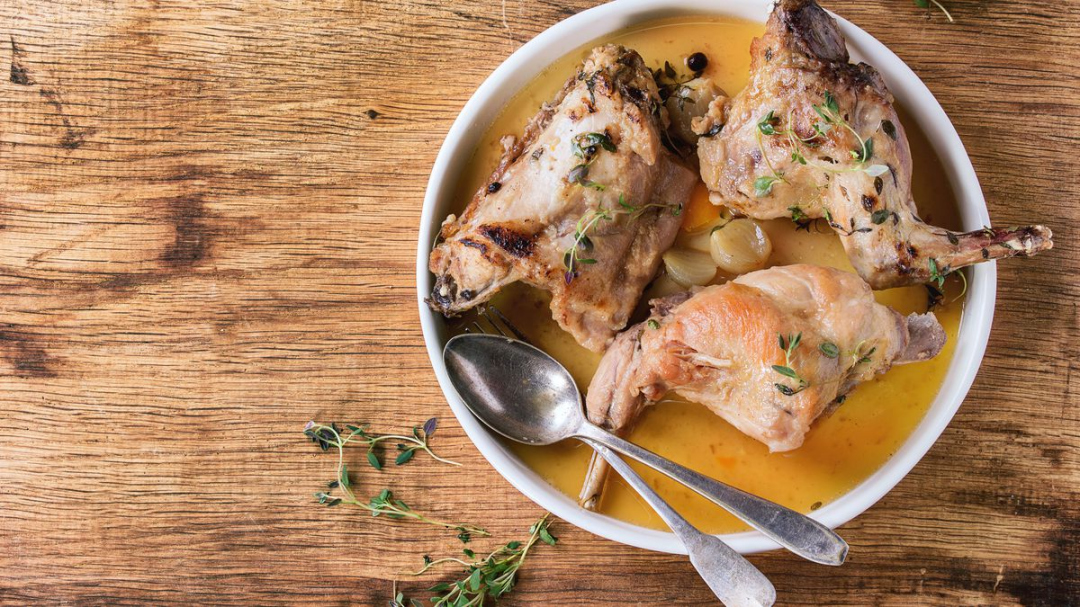When Can You Eat Rabbit?
Rabbit meat is a lean and flavorful protein that is consumed in many cultures around the world. However, there are certain considerations to keep in mind when deciding when to eat rabbit. Below are some important factors to consider:

1. Age of the Rabbit
The age of the rabbit plays a significant role in determining when it is safe to consume. Generally, younger rabbits, also known as fryers, are more tender and have a milder flavor compared to older rabbits. Young rabbits are typically slaughtered between 8 and 12 weeks of age. At this stage, the meat is tender and perfect for grilling, roasting, or stewing.
On the other hand, older rabbits, usually around 6 months of age or more, have meat that is tougher and has a stronger flavor. While it can still be enjoyed, older rabbit meat is better suited for slow-cooking methods like braising or using it in hearty stews.
2. Seasonal Availability
Rabbits are often available year-round, but seasonal availability can affect the quality and taste of the meat. In general, wild rabbits are more readily available during the fall and winter months when the hunting season is open. The colder temperatures during these seasons contribute to the development of a richer and more gamey flavor in the meat.
If you prefer a milder taste, it is advisable to consume farmed rabbits or rabbit meat purchased from a reputable source. Farmed rabbits are typically available throughout the year and can be a good option if you are looking for a consistent flavor.
3. Proper Handling and Preparation
Ensuring that rabbit meat is handled and prepared correctly is crucial for food safety. Like any other meat, improper handling and cooking can lead to the growth of harmful bacteria and foodborne illnesses. Follow these guidelines to safely handle and prepare rabbit meat:
- Always purchase rabbit meat from a reputable source that follows proper hygiene practices.
- Check the meat for any signs of spoilage before cooking, such as an off smell or slimy texture. Discard if any signs are present.
- Store rabbit meat in the refrigerator at a temperature below 40°F (4°C) to prevent bacterial growth.
- Cook rabbit meat to an internal temperature of at least 160°F (71°C) to ensure it is safe to eat.
- Use separate cutting boards and utensils for raw and cooked rabbit meat to avoid cross-contamination.
4. Cultural Considerations
When to eat rabbits can also be influenced by cultural and religious practices. In some cultures, rabbits are considered a delicacy and are consumed year-round, while in others, there may be specific traditions or periods when rabbit meat is avoided.
For example, in certain Christian traditions, rabbit meat is often consumed during the Easter season as a symbol of new life and resurrection. On the other hand, some religious or cultural beliefs may discourage the consumption of rabbit meat altogether. It is important to be aware of these considerations if you are planning to serve rabbit meat for a specific occasion or to guests with diverse backgrounds.
Frequently Asked Questions (FAQs)
Is rabbit meat safe to eat raw?
No, rabbit meat should never be consumed raw. Raw rabbit meat may contain harmful bacteria, and consuming it can increase the risk of foodborne illnesses. It is important to cook rabbit meat thoroughly to ensure it is safe to eat.
Can I eat wild rabbits?
Yes, wild rabbits can be eaten, but it is crucial to follow the regulations and guidelines set by local hunting authorities. Proper hunting permits and licenses are typically required to ensure sustainable hunting practices and to protect wildlife populations.
How do I know if rabbit meat has gone bad?
Signs of spoiled rabbit meat include a foul smell, slimy texture, or grayish color. If you notice any of these signs, it is best to discard the meat to avoid the risk of food poisoning.
Are there any health benefits to eating rabbit meat?
Yes, rabbit meat is a lean source of protein that is low in fat and cholesterol. It is also rich in vitamins and minerals such as iron, zinc, and vitamin B12. Including rabbit meat in your diet can contribute to a balanced and nutritious eating plan.
In conclusion, the age of the rabbit, seasonal availability, proper handling and preparation, and cultural considerations all play a role in determining when it is suitable to eat rabbit. By considering these factors and following proper food safety guidelines, you can enjoy the unique taste and nutritional benefits of rabbit meat.
Related Articles…
Copyright Notice:
This website utilizes images found online, all copyrights are retained by their original owners. If you would like an image removed, kindly contact us.